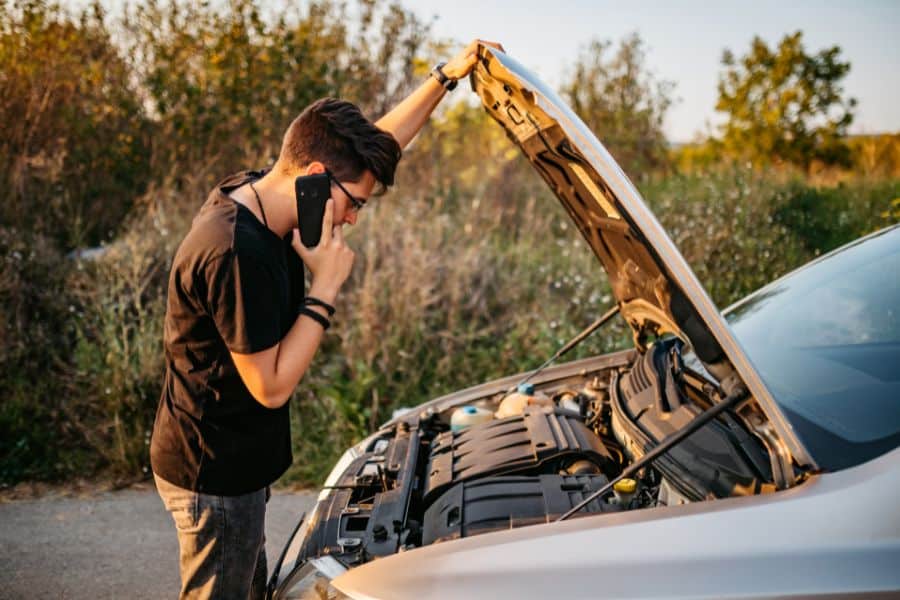The terrible sound of an unidentified rumble, the feared flash of a warning light, or the perfect calm of a non-starting engine, a car break down is usually a preventable accident that causes a lot of frustration. For many drivers, it constitutes a significant disturbance that causes issues, unanticipated expenses, and perhaps safety hazards. Understanding the major causes of car break down is the first and most crucial step toward proactive vehicle ownership. Getting to know common issues and their preventive measures could spare you time, money, and stress rather than expecting disaster to happen. Should the circumstance demand it, this knowledge lets you keep your car dependable and assists you in effectively conversing with your closest car repair garage near me to get back to the road quickly and safely.
Batteries Expire
A dead battery is among the most frequent causes of roadside help calls. Typically, a vehicle’s battery has three to five years. Its collapse comes from a mix of age, extreme storms, and parasitic drains from gadgets left on while the engine is off. Common offenders include damaged terminals that block the electrical connection, as well as a faulty charging mechanism not charging the battery following engine starting. Among the signs are slow engine cranks, fading headlights and illumination of the battery warning light.
Prevention calls for regular examination. Check the battery case for any fractures or bulges, and be sure the terminals are snug and clean. Before leaving the vehicle, switching off all lights, radio and accessories helps to stop the battery from being unnecessarily overburdened.
Errors in the electrical system
Modern car break down rely more and more on complicated electrical systems, ranging from engine management computers and sensors to infotainment systems and electric windows. Worn wiring, damaged connectors, or malfunctioning sensors like the crankshaft or camshaft position sensors crucial for engine operation, can all contribute to faults. Eventually, a failing alternator, which charges the battery while the engine runs, will result in total loss of electrical power. Though easy solutions, blown fuses point to a root problem. These issues sometimes present as erratic gauge behaviour, flickering lights, or a range of unexplained warning messages on the dashboard.
Although much of the electrical system is complicated, staying clear of aftermarket electrical accessories improperly installed can help you prevent many problems, as they might overload circuits. Maintain clean battery terminals to guarantee a constant voltage supply. Quickly diagnose any warning lights or odd behaviour from electrical components. A mechanic can perform a diagnostic scan during servicing to look for stored fault codes, hence detecting possible issues before they cause a car break down.
Trouble with the fuel system
Running out of gas remains a major source of call-outs even though it seems obvious. A clogged fuel filter among e the more difficult fuel system problems that restricts the flow of gasoline or diesel to the engine, therefore causing sputtering, power loss, and starting issues. Utilising adulterated fuel or the inappropriate fuel type (e.g., petrol in a diesel vehicle) is a severe and pricey error.
Regular refuelling before your gauge gets too low also prevents sediment from settling on the tank bottom and from being drawn into the fuel supply. Strictly follow your car break down service plan, which calls for replacing the fuel filter at predetermined intervals. Always operate the fuel grade advised by the manufacturer. Right away, for expert assistance, call if you misfuel; this way, the fuel tank may be drained rather than you starting the engine.
Problems with alternators
The alternator generates power to power your car’s electrical systems while the engine is running and to replenish the battery. An alternator cannot sustain this load when it begins to die. Eventually, a defective alternator would leave you stranded by totally depleting the battery.
Prevention: Even if the alternator is a wear part destined to need replacement, you may help to extend its life. Ask your mechanic to check the output of the alternator during regular maintenance to ensure it is charging within acceptable limits. Handling charging system warnings right away will enable you to prevent being stuck miles from home with a dead battery.
Conclusion
Eventually, a car break down usually results from disregarded early warning signals or neglected maintenance. Taking a proactive approach to car maintenance will greatly lower the probability of these frequent problems. Consistent maintenance, together with easy weekly checks of tyres, fluid levels, and lights, forms the basis of dependable transportation.




